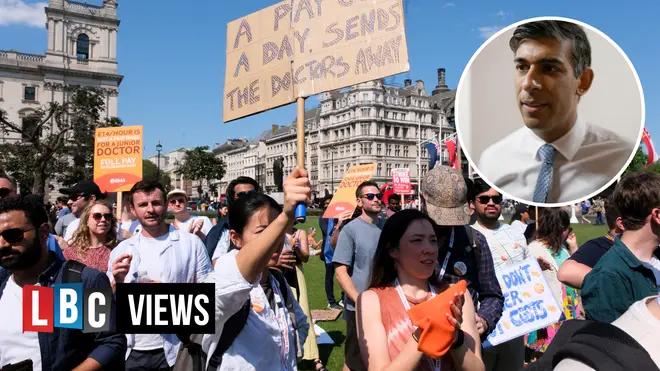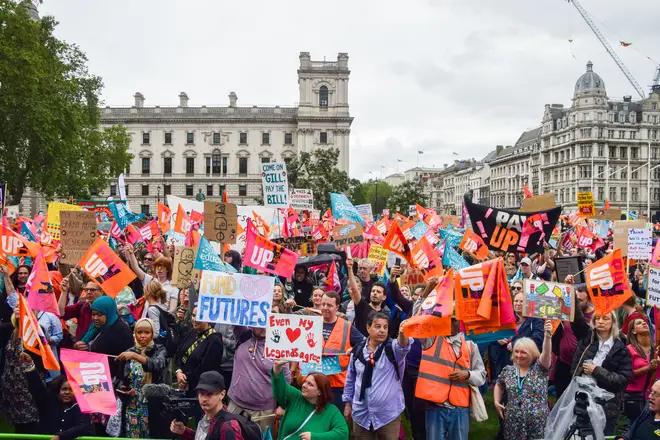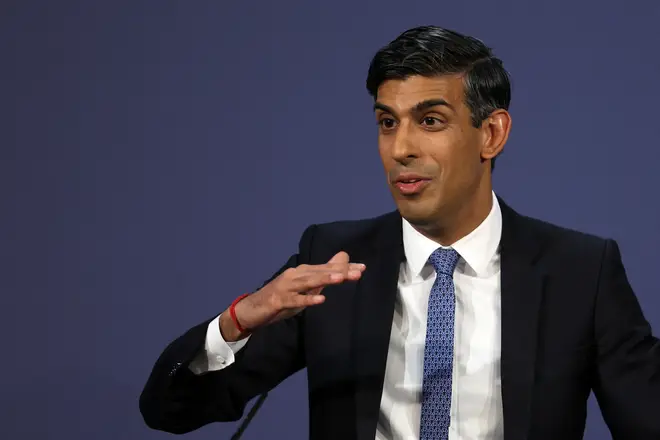
Nick Abbot 10pm - 1am
13 July 2023, 16:06

In recent weeks the prime minister Rishi Sunak has looked increasingly tetchy, frazzled and irritated.
Quietly, his party, hypnotized by terrible opinion polls, had decided there was no way he could win the next election. Many relatively young and once ambitious Tory MPs were looking for alternative careers in the private sector.
One day, one announcement can't turn everything around. But today, relatively bouncy and punchy, Rishi Sunak suddenly looked like a man who was enjoying himself again.
By accepting the public sector pay review awards in full, he got an instant reaction from the teaching unions, who are calling off all their strikes.

Suddenly he began to look like someone in control of events – and if the health unions follow suit, it will be the biggest win of his Premiership so far.
This matters because with three by-elections coming next week, and expectations that the Conservatives will be hammered in all of them, the party was on the verge of splintering into feuding groups of disloyalists.
Mr Sunak’s much touted five pledges to the country, made in January, are not looking in good shape - although to be fair there is still six months to go before they are meant to be redeemed.
But if he can get the public sector to accept below-inflation wage increases, and if the health unions call off their strikes, allowing him a better chance of hitting his target on waiting lists, then all is not lost.
Labour was initially unable to say whether it too would accept these pay increases, and today's moment of theatre makes it harder for the opposition to portray Sunak as a weak, ineffectual leader.
He hasn't had a better day since becoming Prime Minister.

Of course, there's a long way to go and many unresolved questions remain. Will the other unions, including senior doctors who have a very large pay claim, follow the teachers? Just as important, how are the pay rises going to be paid for?
The Prime Minister was adamant that there would be no extra public borrowing because it would be inflationary; and that no taxes would rise.
Some of the answer comes in higher health and visa charges for foreigners - if in a whole, find a way to tax foreigners, is a long-standing political principle on all sides.
But that in itself can't cover the bill. The Tories wouldn't allow Labour to raise spending, in this case billions of pounds, without explaining how it would be paid for.
Yet so far, Mr Sunak and his ministers have dodged reasonable questions about which areas of public spending are going to be cut back in order to pay teachers, the police, health workers, the military and others these higher salaries.
That won't wash. It looks slippery and unconvincing and the public will want answers soon.